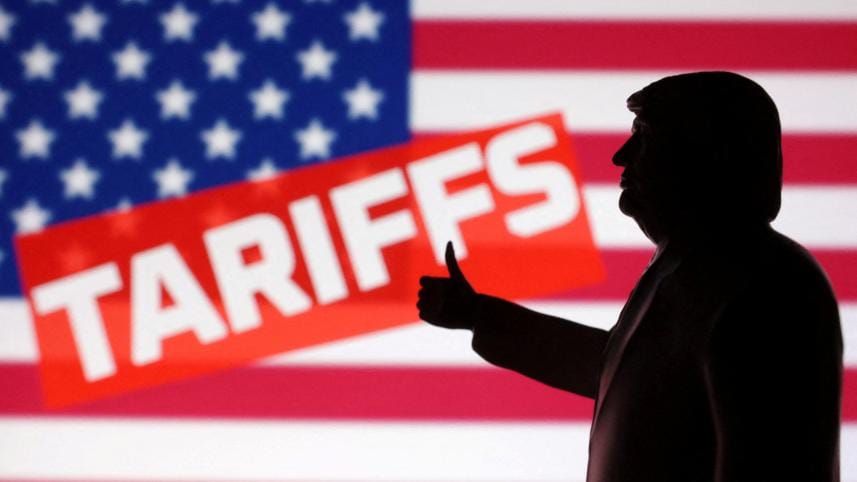Bangladesh risks $1.25b export loss to US over tariffs

Bangladesh's exports to the US market could fall by up to 14 percent, or nearly $1.25 billion, over the next year due to the recently imposed 20 percent reciprocal tariff, according to study by the Research and Policy Integration for Development (RAPID).
Of the total, apparel exports alone could lose around $1.08 billion, RAPID Chairman Mohammad Abdur Razzaque said during a presentation at a workshop for journalists on the implications of US reciprocal tariffs and LDC graduation, held yesterday at the CIRDAP in Dhaka.
Razzaque noted that Bangladesh's export losses are expected to be smaller than those of some other countries. "Overall, US imports of apparel will fall by $10 billion, and this shrinking market will make any export growth very difficult," he said.
He added that although Bangladesh faces lower tariffs than major competitors such as India and China, expanding exports remains challenging.
"Bangladesh finds itself in a tricky situation. While the country may gain market share in the US apparel sector, this may not translate into an overall increase in exports, as the total market size is contracting," he explained.
Exports from other nations are also projected to drop because of additional tariffs imposed by the Trump administration. China's exports to the US could fall by 58 percent, India's by 48 percent, Vietnam's by 28 percent, and Indonesia's by 27 percent, Razzaque said.
The equation could shift further against Bangladesh if India manages to secure a trade deal that reduces its reciprocal tariff by 20 percent. "In that case, Bangladesh's export decline could deepen to 17.46 percent, while India's would ease to 18.33 percent," he warned.
The US is Bangladesh's largest single export destination, with garments accounting for more than 90 percent of shipments to the American market. Annually, the South Asian country exports goods worth more than $8 billion to the US and imports about $2 billion, leaving a $6 billion trade gap. Globally, it is also the third-largest garment exporter to the US after China and Vietnam, holding a 9.3 percent share of the $81 billion American apparel import market.
Razzaque further observed that export prospects will be strained by intense competition, which is likely to push down prices in other key markets such as the European Union.
According to Razzaque, the long-term impact will depend on several factors, including US domestic inflation, possible policy reversals, shifts in global sourcing, and Bangladesh's own ability to adapt to the changing trade environment.
"Although the tariff structure could have been worse, there is no cause for complacency," he said. "Strategic policy interventions, efficiency improvements, and diversification of export markets will be critical going forward."
A Dhaka-visiting US trade delegation on Monday called on the government to accelerate labour law reforms and narrow the trade deficit to help further reduce retaliatory tariffs on Bangladeshi exports to the American market.
The delegation made the call during a meeting with leaders of the Bangladesh Garment Manufacturers and Exporters Association (BGMEA) at the US ambassador's residence in Dhaka yesterday.
Brendan Lynch, assistant US trade representative for South and Central Asia, led the three-member team.
BGMEA leaders urged the US side to consider deeper tariff cuts to sustain the steady flow of garment exports to the American market, which is the largest source of private-sector employment in Bangladesh.
Doulot Akter Mala, president of the Economic Reporters Forum, and Mohammed Abu Eusuf, executive director of RAPID, also spoke at the event.



 For all latest news, follow The Daily Star's Google News channel.
For all latest news, follow The Daily Star's Google News channel.
Comments